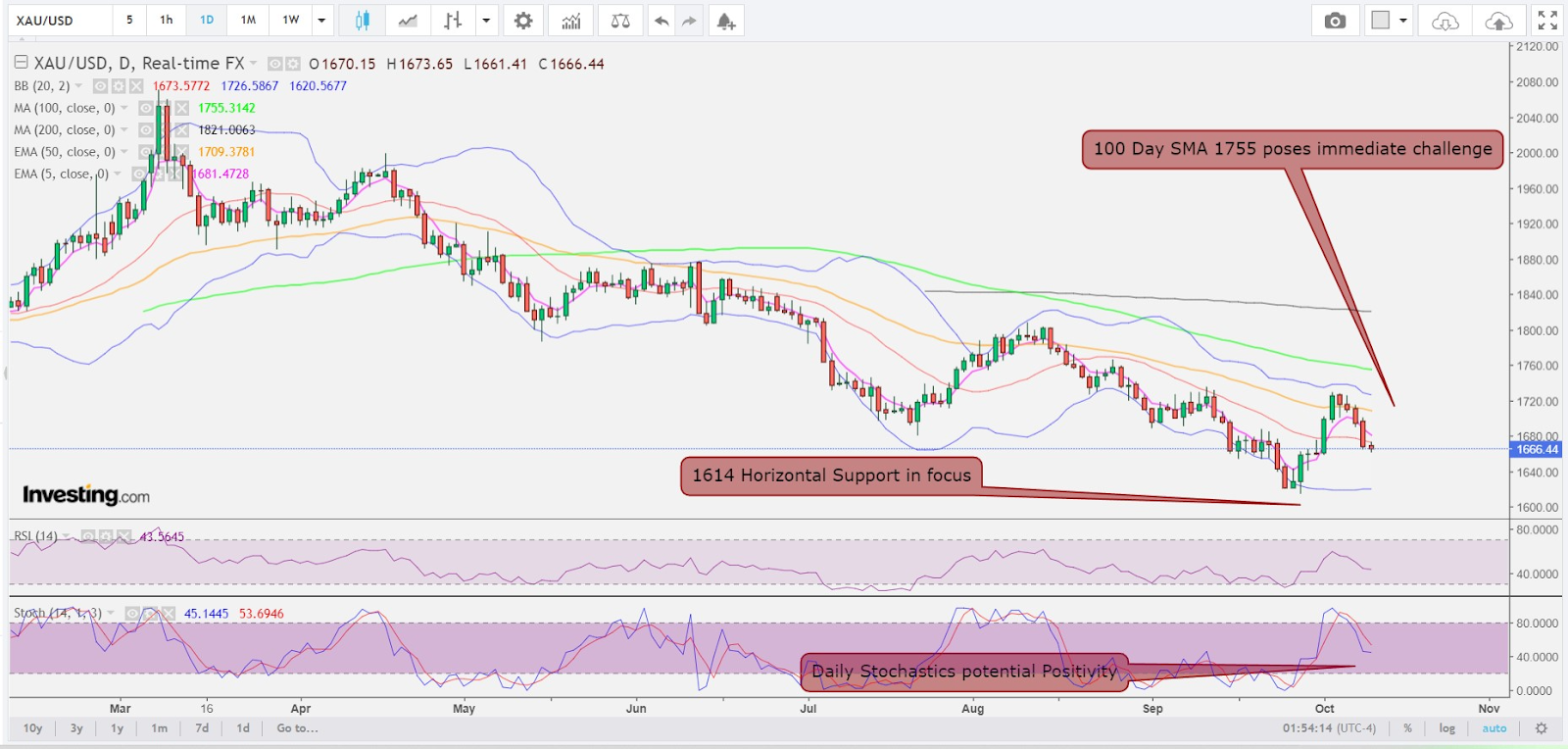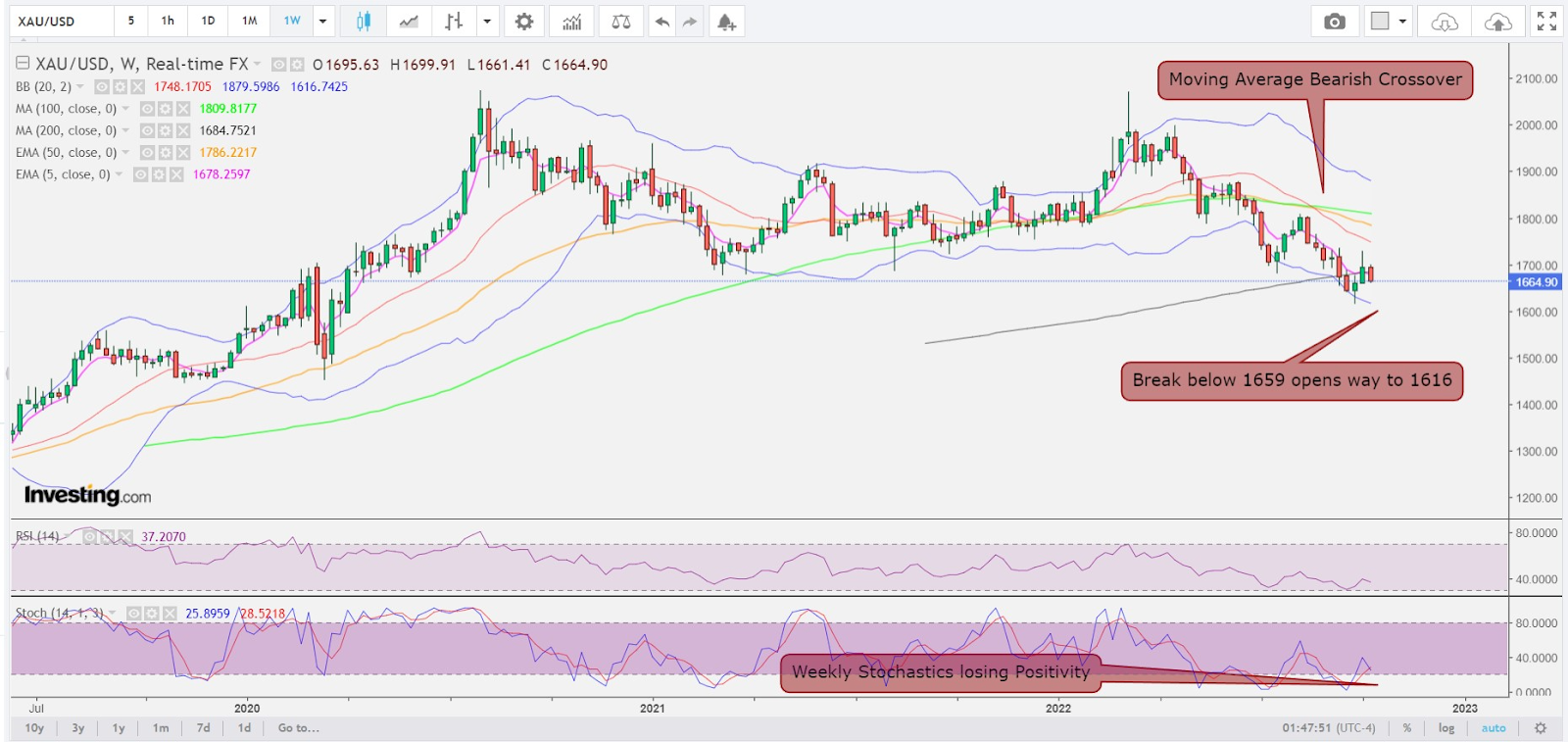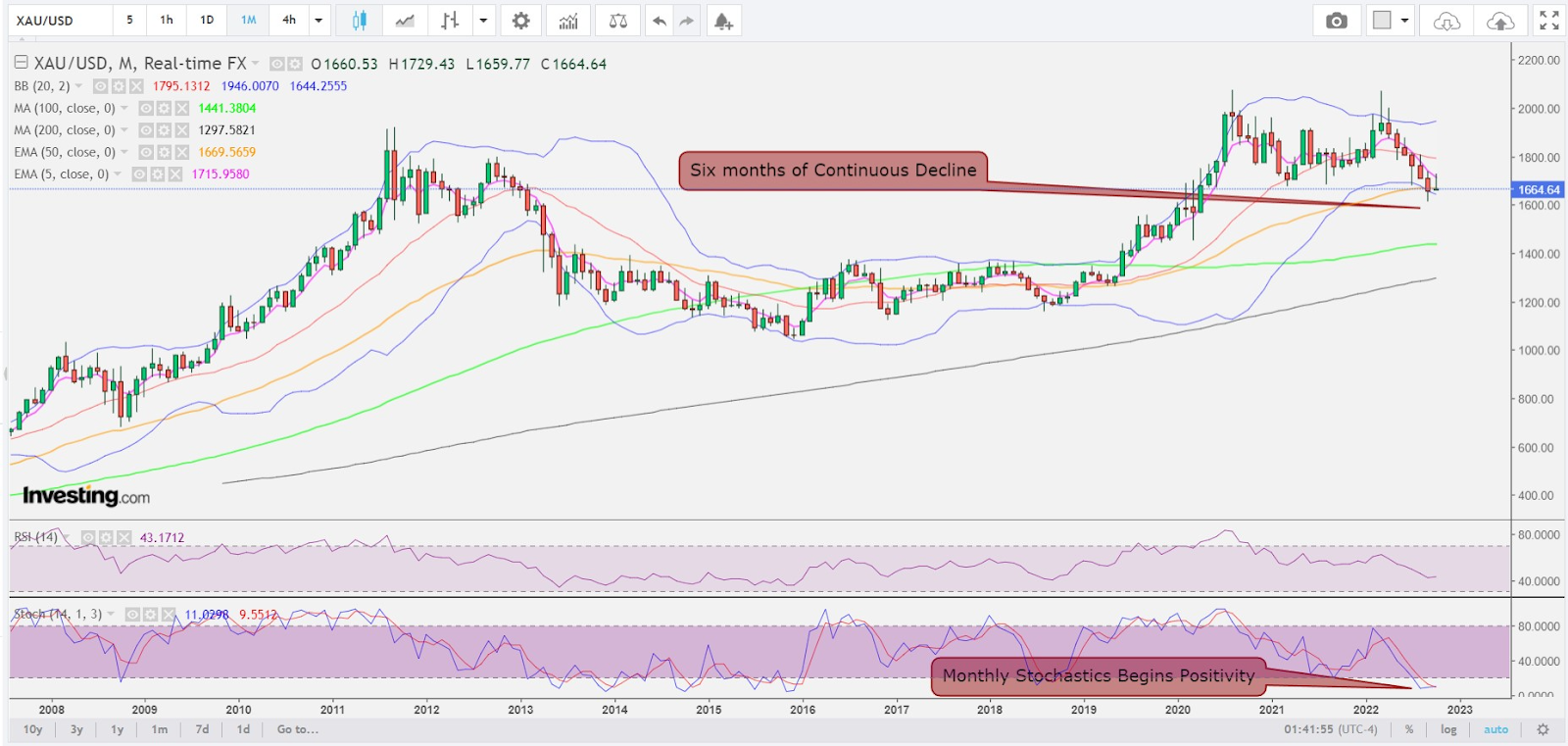ION expands ETF trading capabilities with Tradeweb integration
- Dollar Index could revisit 114 to 114.75 range
- Break below $1,660 looks vulnerable for spot gold
- Immediate downside at $1,650-$1,640, could extend to $1,630 and $1,616
- But short-term range has resistance at $1,710-$1,730
It’s becoming an increasingly predictable story in gold.
Each Federal Reserve rate hike delivers a bolt of lightning that empowers longs in the dollar and bond yields and roasts those holding gold. Then, the yellow metal sees a piddly price recovery over the next three weeks, awaiting inflation signals from the Consumer Price Index (CPI). Once that’s out, the Fed is back in another three weeks: Time to sell gold again.
This 'Sell, Buy, Sell' has been a rinse-repeat of the gold trade since the Fed hikes of the post-pandemic era began in March.
The moment the central bank’s policy-making Federal Open Market Committee (FOMC) concludes one meeting, the nightmare starts for the long-bullion crowd: What will the next one bring in rates? 75 basis points or 50? Or God forbid, will we have a 100 bps hike in the foreseeable future?

Charts by SKCharting.com, with data powered by Investing.com
The irony is the FOMC decisions are not doing what they are supposed to for gold—in theory at least.
Given gold’s billing as a hedge against inflation, the price-driven rate hikes ought to provide a meaningful boost to the metal’s prices.
Yet, gold longs suffer with each rate hike as the dollar increasingly entrenches itself as the post-pandemic king of assets, hitting 20-year highs repeatedly in September to become the default safe-haven at gold’s expense.
Between one Fed hike and another, a gap of $100 or more is created from the highs to the lows in gold. Buyers do come in during the interim period before the next CPI. But seldom is the net recovery in gold beyond $50 each time, thanks to the volatility created in no small part by the speeches of Fed policy-makers whose only agenda appears to be to blow a hole big enough in the job market and consumer demand that will slow inflation meaningfully.
Officially, the Fed denies wanting a recession. But the megaphone it wields drowns out any countering talk by economic optimists, catapulting the dollar and yields into orbit while sending gold hurtling into the abyss.
And each of these cycles is bringing gold closer to the critical support of $1,560, charts show.
The last FOMC decision—which bumped up rates by 75 basis points for a third straight time—was on Sept. 21.
The next CPI report, detailing inflation in September, is due in two days—Oct. 13.
The central bank is scheduled to decide again on rates on Nov. 2—nearly three weeks later—and the money is on (no surprises, of course) another 75 basis points.

With tight US labor markets and inflation struggling to come down materially, policymakers are likely to forge ahead with their plans to raise borrowing costs to a sufficiently restrictive level in the coming months, gold strategist Diego Colman concurs in a blog published Monday. He adds:
“Recent Fedspeak also suggests that rates will stay high-for-longer, ruling out a premature pivot in 2023.”
“The specter of an aggressive hiking cycle should put upward pressure on real yields, keeping the U.S. dollar, already trading near multi-decade highs, tilted toward further appreciation. In this environment, precious metals will underperform, increasing the likelihood of additional losses for both gold and silver.”
Headline CPI for September is forecast to have risen 0.2% month-on-month (mom) and 8.1% year-on-year. The core CPI gauge—stripped of volatile food and energy costs, and one that the Fed particularly watches, is seen weighing in at 0.5% mom, with the annual rate projected to accelerate to 6.5% from 6.3%, matching the cycle’s high in March.
Colman adds:
“Any CPI upside surprise should be negative for gold prices insofar as it should lead to hawkish repricing of the Fed’s hiking path. While the yellow metal is typically viewed as a good inflation hedge, that theory only plays out over very long temporal intervals. Over short time horizons, yields and dollar movements should be more important for precious metals as displayed in the chart below.”
So, where could gold go, at least technically, in the next three weeks?
The best indicators come from the Dollar Index, which pits the US currency against the euro and five other rivals. The index rallied for a fourth session in a row on Monday, hitting a session high of 113.27.
The yield on the 10-year Treasury note is another that eggs the dollar higher. Yield levels hit a 10-day high of just above 4.0.

Sunil Kumar Dixit, chief technical strategist at SKCharting.com, says:
“As the Dollar Index attracts buyers at 110, taking it to 113.45 in last five days, signals are that it will revisit 114 and 114.75.”
“This recovery in the dollar is also causing 10-year bond yields to spike, with both mutually yanking one another.”
Dixit, who tracks the spot price of bullion, said while gold’s short-term trend was bearish, sporadic bullish spikes may be seen for a retest of the $1,673 and $1,686 resistance zone. He adds:
“A break below $1,660 looks vulnerable, which makes the $1,650-$1,640 immediate downside likely extend to $1,630 and $1,616."
“The short-term range is marked by a $1,710-$1,730 resistance and $1,616 support, which is controlled by reaction to the $1,660-$1,670 mid range.”
Disclaimer: Barani Krishnan uses a range of views outside his own to bring diversity to his analysis of any market. For neutrality, he sometimes presents contrarian views and market variables. He does not hold positions in the commodities and securities he writes about.
